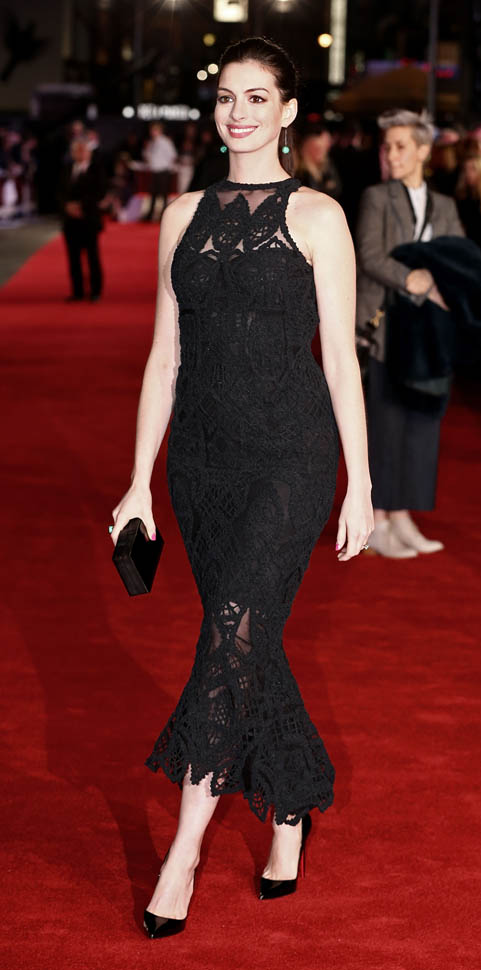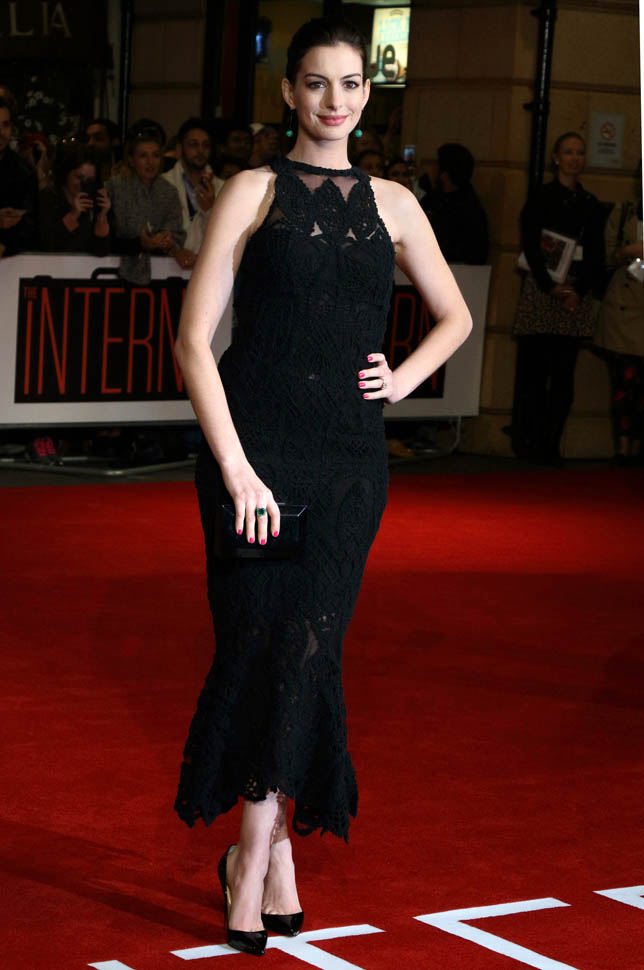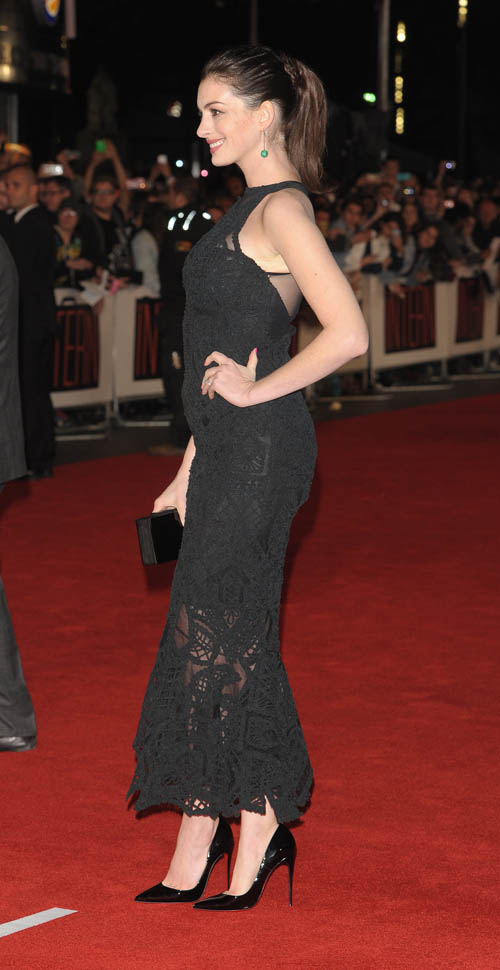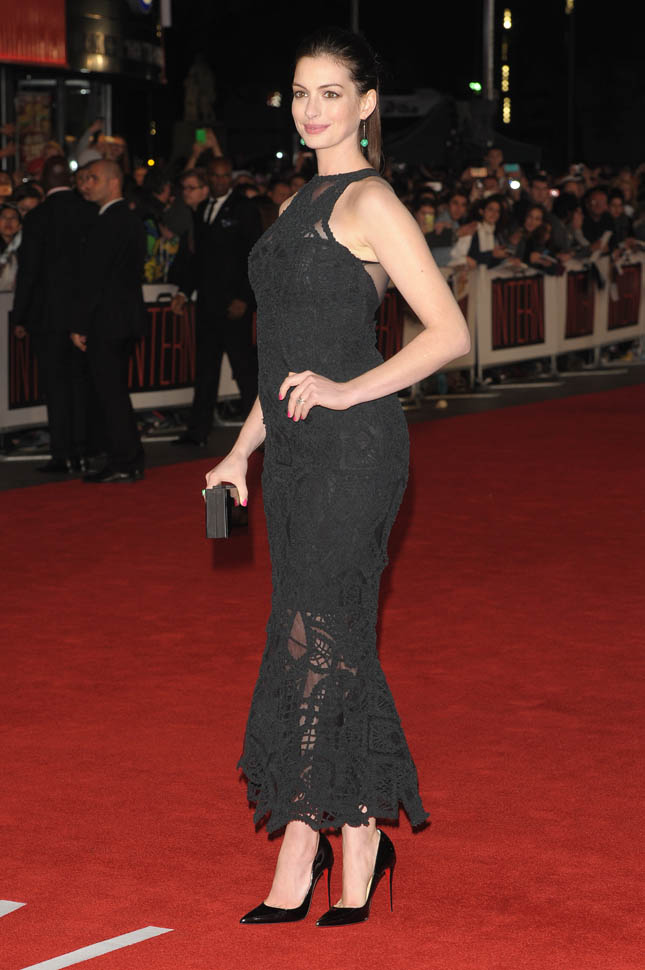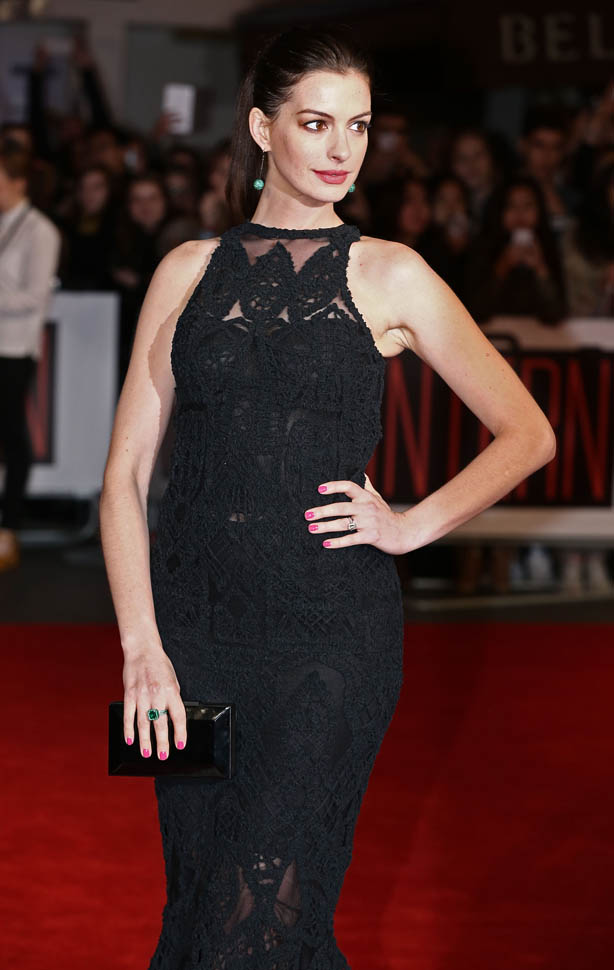Don’t think too hard about Anne Hathaway in The Intern



Nancy Meyers’s latest Upper East Side White People With Problems movie, The Intern, follows the likes of It’s Complicated and Something’s Gotta Give, except The Intern has been liberally doused with hipster flavor in an attempt to appeal to The Youths. Manhattan has been traded for Brooklyn—sorry, Brooklyn, as the location of a Nancy Meyers movie you are no longer hip—and the “people of a certain age” rom-com plot has been replaced with a platonic, inter-generational friendship between a thirty-something Millennial and a septuagenarian Baby Boomer. If you don’t look too hard, The Intern is a stylish bit of fluff starring two compelling actors, Anne Hathaway and Robert De Niro, that is mostly harmless as long as you don’t look at it too hard. But if you find yourself thinking about this movie for more than three seconds, you’re in for a bad time. There are some f*cked up gender politics at play in The Intern.
Hathaway stars as Jules, the founder of an online haute couture website—think Net-A-Porter—which has grown exponentially and made her very successful and rich. So rich. Everyone in this movie is rich. There are no poor people or anyone with mortgages or student loans anywhere in The Intern, which takes place in the same universe as Girls because there are also no minorities. But look at Jules’s fabulous warehouse office space! And her amazing brownstone house! The Intern was filmed inside a Restoration Hardware catalog. De Niro, meanwhile, plays Ben, a seventy-year-old widowed retiree who takes an internship at Jules’s company to stave off the boredom of waiting for the inevitable release of death.
There is something to this setup that rings true. Jules is young enough to see the possibilities in online entrepreneurship and take advantage, but still inexperienced enough that running an actual company is challenging – and this doesn’t feel condescending. Ben is from a generation that was raised to revolve around work, and so he feels compelled to keep working even when he no longer has to. (Literally he says the only things that matter in life are “love and work”, so friendship and hobbies can get f*cked.) But the premise immediately starts collapsing like a bad soufflé because Ben is hired through a “senior internship” program. Why not just be the unlikely applicant to a regular internship program? Why make it a “senior” internship program? There’s no way that isn’t patronizing when you think it through.
Which is the challenge of The Intern—don’t think it through. Watch it on an airplane and take it as cinematic cotton candy, just do not take it seriously because it won’t hold up. Jules is under pressure by her investors to hire a more experienced CEO—read: hire a dude to run the place. She fights this, but ends up leaning on Ben as her consigliere, learning how to better run her business and manage her work-life balance. Meyers, who also wrote the script, seems sincere in her desire to explore what it means for a new generation of women to Have It All. But she falls back into some troubling gender stereotypes. Jules still needs a man to tell her how to live her life—the progressive ideas in The Intern only go so far as making her relationship with her male mentor unromantic.
I hated The Family Stone because it openly punishes Sarah Jessica Parker’s character for nothing more than being a successful career woman, and at least The Intern doesn’t go so far as to punish Jules for her success. Her stay-at-home husband, Matt (Anders Holm), is not as content as he claims with giving up his job in order to support Jules in hers, but Meyers resists drawing a direct line between Jules’s career, which takes her out of the home a lot, and Matt’s indiscretions. But there is still a weird punishing tone to the movie, because it’s always assumed that there is some adjustment Jules can make, or solution she can find to better manage her sh*t. A smarter version of this movie, one more willing to engage with the real world, would to put the onus on a society that is so unforgiving to women and working mothers. After all, the movie begins with Jules overwhelmed and struggling, and her investors’ idea of a solution is to take her job away from her. The problem with The Intern is that it’s always about the changes Jules can make to better fit into traditional ideals of womanhood, and not how Jules can redefine those roles and definitions to make the world work for her.
Attached - Anne Hathaway at the London premiere of The Intern last night.



